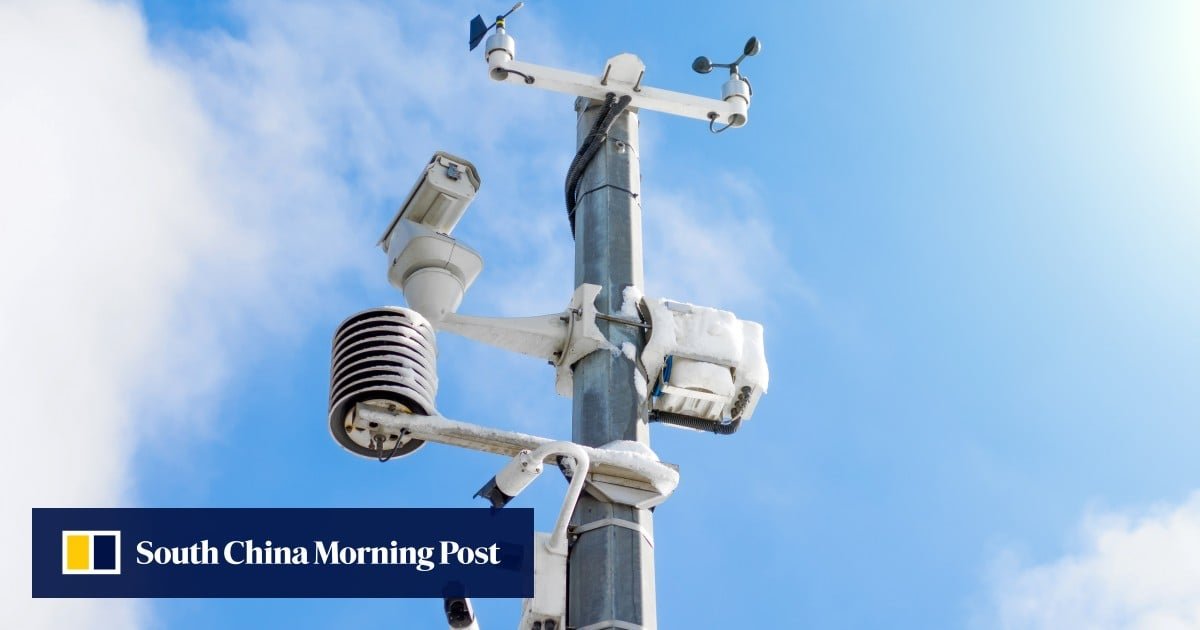
China’s state security ministry has warned of data leak risks from wind measurement towers – tall structures that measure meteorological data such as wind speed, direction, temperature and air pressure – as part of the country’s sweeping national security drive.
A resident of a coastal city reported to national security authorities that a company had illegally built a wind tower near a sensitive location, and the resident suspected the tower might be used to collect sensitive data, according to the report.
The state security ministry investigated and found that the wind tower had the ability to analyse and send data, CCTV said, adding that “if this data is leaked abroad, it could pose a risk to national security”.
Authorities have stopped the data from being leaked abroad, according to the broadcaster.
The report did not give details about the resident’s identity, the location of the wind tower or which coastal city it was in, who operated the tower or any criminal penalties arising from the case.
In another case described only in vague terms, a wind measurement tower near a scientific research base came under suspicion out of fears it may have illegally collected and sent data abroad, according to the report.
The report said that after investigation, it turned out that the tower was not legally registered and that its data transmission methods were “complex, posing significant security risks”. The tower was later taken down, CCTV said.
The warning came after Communist Party leaders highlighted the country’s national security drive during the pivotal third plenum in July.
It also comes amid intensifying strategic competition between China and the US-led West in all domains, including technology and trade.
Beijing enacted a new counter-espionage law last year, which has expanded both the definition of spying and the investigative powers of national security agencies.
In 2022, the China Meteorological Administration, Ministry of State Security and the National Administration of State Secret Protection revised a regulation on “foreign-related” meteorological detection and data, which stipulates conditions that may lead to criminal charges.
According to the regulation, meteorological stations with overseas ties must not be built in sensitive areas, and meteorological data must not be provided to foreign entities without approval.





